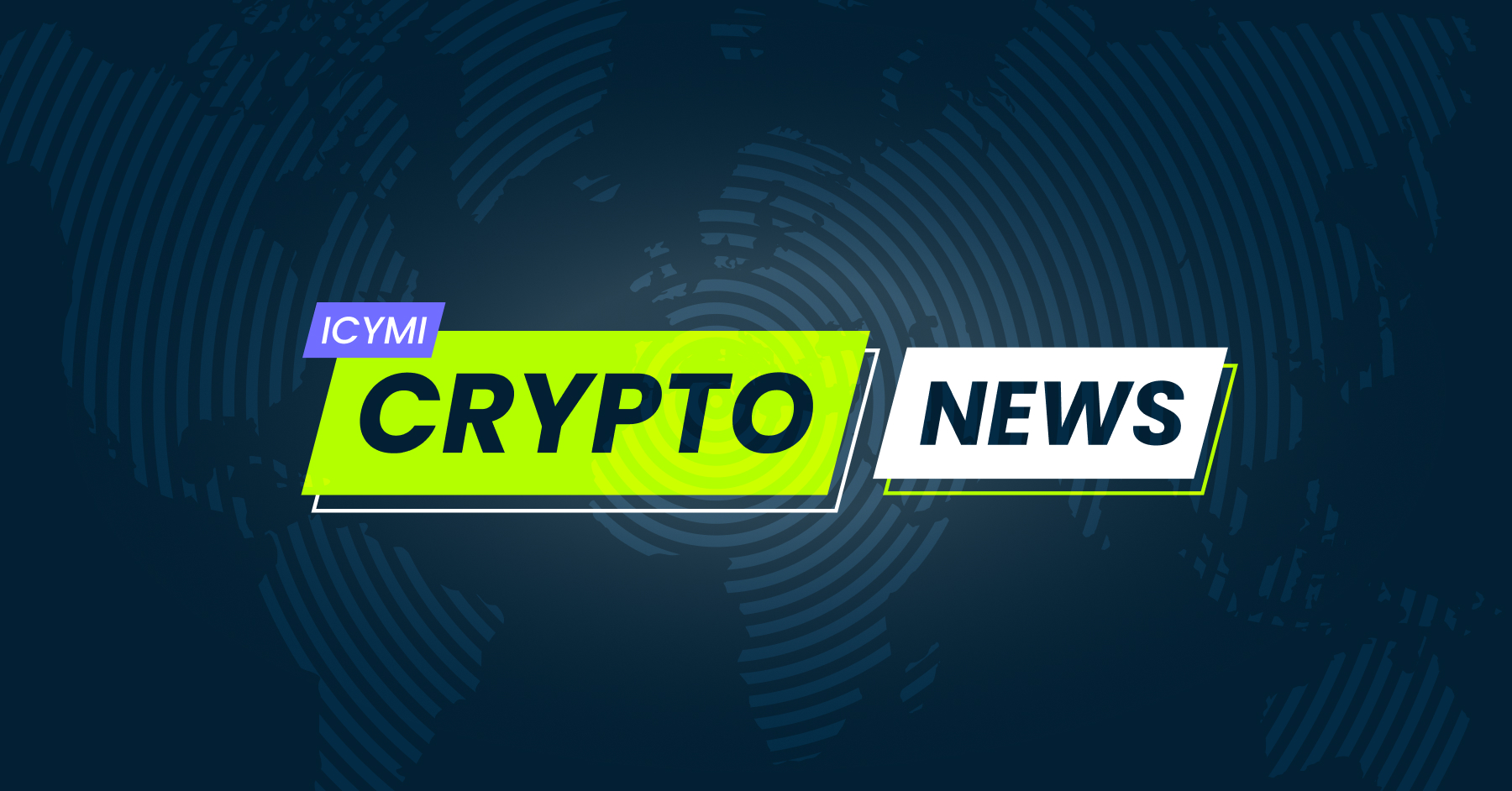One Of The Most Reliable Sources for Daily copyright News and Market Updates
Exploring the Impact of Regulatory Modifications and Technological Developments on Today's Digital Currencies Headings
The crossway of governing adjustments and technical technologies is fundamentally modifying the landscape of electronic money, motivating a re-evaluation of their function in the international economic situation. Governing bodies, such as the SEC and CFTC, are actively influencing how digital properties are classified, while brand-new modern technologies are improving transaction effectiveness and protection actions.
Current Regulatory Landscape
In the wake of quick improvements in electronic currencies, the current governing landscape is advancing to attend to the intricacies and difficulties positioned by these advancements. Federal governments and governing bodies globally are coming to grips with exactly how to successfully supervise this growing market, which commonly transcends national boundaries.
Trick governing strategies consist of the establishment of frameworks that specify electronic currencies, guaranteeing consumer defense and stopping illegal activities such as cash laundering and fraudulence. In the United States, agencies like the Stocks and Exchange Compensation (SEC) and the Product Futures Trading Commission (CFTC) are proactively taking part in discussions to make clear the classification of various electronic possessions and their regulatory effects.
In A Similar Way, the European Union is advancing its Markets in copyright-Assets (MiCA) regulation, which intends to create a natural regulative environment throughout member states. Nations like China have gone with more stringent measures, consisting of outright restrictions on certain copyright tasks.
As this regulative landscape remains to create, it will be crucial for stakeholders, consisting of services and consumers, to stay enlightened and adjust to the altering atmosphere to alleviate risks while profiting from chances within the electronic currency ball.
Key Technological Innovations
Many technological advancements are improving the landscape of digital money, considerably boosting their functionality and safety. Among the most essential advancements is the advancement of blockchain modern technology, which provides a decentralized ledger that makes certain transparency and immutability of deals. copyright news. This modern technology not only reduces the danger of fraudulence but likewise enables real-time purchase verification, promoting individual trust fund
Additionally, the development of clever agreements has actually revolutionized exactly how contracts are implemented within electronic currency communities. These self-executing agreements promote computerized purchases, eliminating intermediaries and decreasing expenses connected with standard agreement enforcement. In addition, innovations in cryptographic strategies boost the security of digital wallets, safeguarding users' assets from potential cyber threats.
An additional noteworthy innovation is the integration of synthetic intelligence in deal surveillance and fraud discovery, enabling systems to determine dubious tasks without delay. The intro of Layer 2 scaling options, such as the Lightning Network, addresses scalability issues, permitting for faster and more affordable deals on networks like Bitcoin.

Effect On Market Dynamics
Technological developments in electronic money have not just boosted performance and protection but have also considerably modified market dynamics. The introduction of blockchain innovation has actually boosted openness and lowered special info purchase prices, leading to greater efficiency in trading and investment. This has encouraged a more varied range of participants, from retail investors to institutional players, to involve with electronic money, therefore intensifying market liquidity.
In addition, the appearance of decentralized money (DeFi) systems has actually interfered with standard financial systems, providing customers with alternative opportunities for loaning, loaning, and trading. This shift has cultivated an affordable atmosphere where conventional banks are compelled to introduce or run the risk of obsolescence (copyright news). With the increase of stablecoins, which offer rate security amidst volatility, investors can currently perform transactions with lowered threat, additional affecting market habits
Furthermore, the integration of fabricated intelligence and artificial intelligence in trading methods enables for extra advanced market analysis and anticipating modeling. Because of this, capitalists are better equipped to react to market changes, creating an extra dynamic trading ambience. Collectively, these technologies are reshaping the landscape of electronic currencies, causing a much more interconnected, affordable, and effective market.

Worldwide Viewpoints on Guideline
Governing methods to electronic money differ dramatically around the world, often reflecting differing economic priorities, cultural attitudes towards innovation, and degrees of technical fostering. In the USA, governing bodies such as the SEC and CFTC come to grips with specifying the legal condition of cryptocurrencies, concentrating on investor protection and market honesty. The European Union is advancing comprehensive regulatory structures like the Markets in copyright-Assets (MiCA) proposal, aiming to develop a unified technique that promotes innovation while ensuring customer security.
In contrast, nations like China have adopted a straight-out ban on cryptocurrencies, prioritizing financial control and financial security over advancement. Conversely, countries such as El Salvador have embraced Bitcoin as lawful tender, showcasing a bold dedication to monetary incorporation and economic innovation.
Developing nations frequently locate themselves navigating an intricate landscape, balancing the demand for policy with the possible benefits of electronic currencies in driving financial growth. Generally, the global governing environment stays fragmented, with continuous discussions and adjustments as governments look for to strike a balance in between fostering advancement and mitigating threats connected with electronic currencies. This dynamic landscape highlights the demand for continuous YOURURL.com global teamwork and discussion amongst regulators.
Future Patterns in Digital Currencies
As regulatory structures evolve, the landscape of digital money is positioned for significant improvement. Arising trends suggest a merging of regulatory clarity and technical innovation, which will form the future of digital currencies. Reserve Bank Digital Currencies (CBDCs) are expected to get grip as governments explore their prospective to improve financial plan performance and financial inclusion.
Concurrently, decentralized money (DeFi) systems are anticipated to test traditional banking systems, providing ingenious monetary services that operate without intermediaries. This shift might cause a re-evaluation of existing guidelines to suit the one-of-a-kind characteristics of DeFi while ensuring consumer protection and systemic stability.
Additionally, the combination of fabricated knowledge and equipment understanding in copyright trading and threat analysis will certainly redefine financial investment visit this page methods and market dynamics. As digital currencies come to be increasingly conventional, concerns such as cybersecurity hazards and regulative compliance will require robust solutions.
Finally, public perception and fostering will play a critical function in determining the trajectory of electronic currencies. Boosted awareness and education and learning concerning the advantages and risks connected with digital money will certainly drive acceptance, inevitably influencing the regulative landscape and market developments in the years to find.
Verdict
